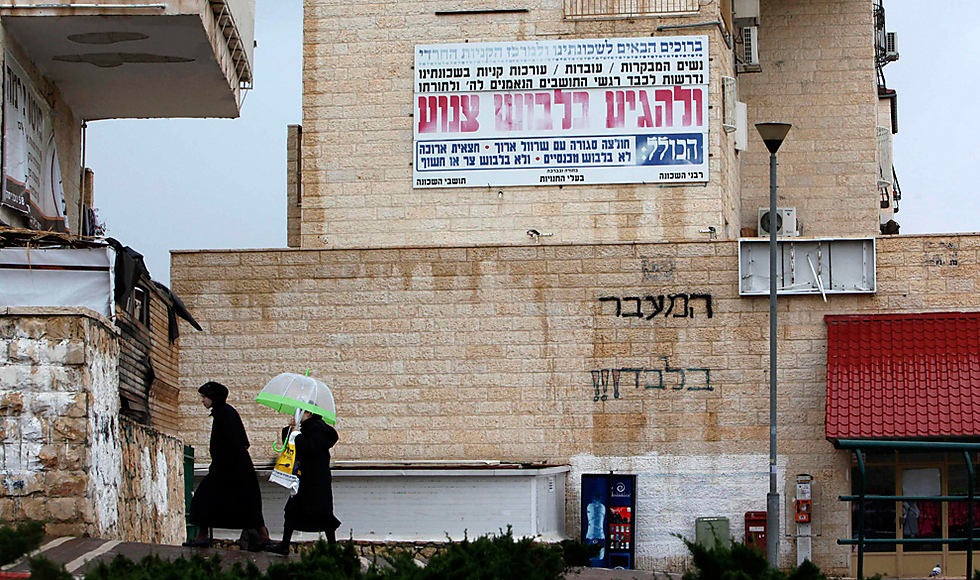
Court orders Beit Shemesh municipality to remove modesty signs
Beit Shemesh municipality has two weeks to remove modesty sign blocking women from public streets; 'Israel will not have streets closed to women,' justices say, while mayor says signs are 'ideological.'
The justices ruled the signs exclude women from the public sphere and demanded the city's municipality finds a solution to prevent their recurrence.
"Women will not be excluded from the public sphere in Israel," they declared, after the city's Mayor, Moshe Abutbul, called them merely "ideological signs," and told the judges that similar signs exist in Meah Shearim.
"On Sunday, December 12th, the signs will come down," declared Justice Hanan Meltzer. "Israel does not have streets that are closed to women."
The court's instructions come in response to an appeal by the Beit Shemesh municipality against an earlier administrative court ruling that demanded the signs come down by July 2017, and fined the city NIS 10,000 for every day the signs remained up.
'The mayor is mocking us'
For almost three years, women in Beit Shemesh have been complaining about the city's refusal to remove the modesty signs, as instructed by the court in 2015 in response to a petition filed by attorney Orly Erez-Lahovsky.
The court at that time said that the signs are offensive and "cause serious harm to human dignity, equality, personal choice and autonomy." The court also said that the city has been negligent in not removing the signs and instructed them to compensate the supplicants NIS 60,000.
,
Two years have passes and the signs were not removed, so the women went to the administrative court which gave the city until July 2017 to remove the signs–with a fine for every day it had not done so.
The Beit Shemesh municipality appealed the decision to the Supreme Court and as part of the appeal removed the signs, but they were immediately hung again and nothing has been done since.
"We were glad to hear the determined and unequivocal statement against the signs and restricting women from certain streets. The judge was resolute in saying that there will not be streets closes to women and he said too that a dress code in public is unacceptable," said Miri Shalem, a Beit Shemesh resident and one of the petitioners, noting that "Most of the signs are on highly visible major streets and not on side streets in Haredi enclaves."
"The mayor is mocking us, he is inconsistent," Shalem added. "Thankfully our lawyer is persistent. It can be exhausting and we sometimes ask ourselves if it's even worth it, but it is an important battle for us."
In response to the court ruling, attorney Erez-Lahovsky said that "We are thankful for the unequivocal statement by the Supreme Court which ruled that modesty signs are offensive and we ought not to tolerate them."
"The order to remove the signs with a police escort and a constant police presence will send a strong message that the rights of the women of Beit Shemesh are important," said Lahovsky. "The ruling is a victory for the rule of law over the rule of lawlessness, a victory for the rights of women for respect and equality. We will continue to monitor and combat all instances of exclusion of women in Israel."











